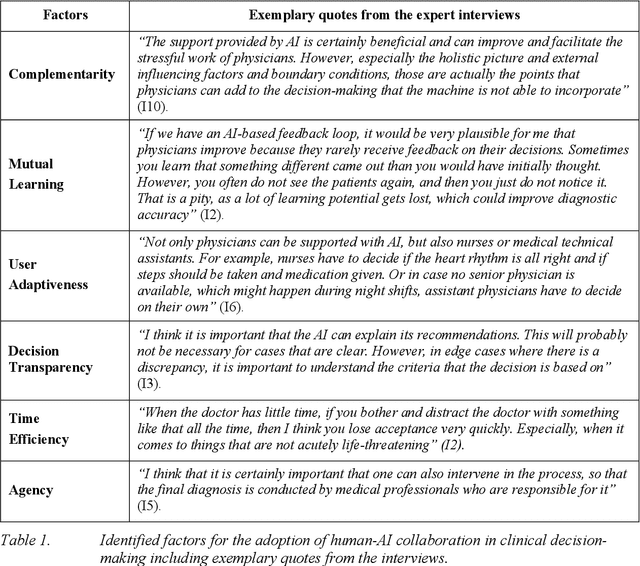Factors that influence the adoption of human-AI collaboration in clinical decision-making
Paper and Code
Apr 19, 2022
Recent developments in Artificial Intelligence (AI) have fueled the emergence of human-AI collaboration, a setting where AI is a coequal partner. Especially in clinical decision-making, it has the potential to improve treatment quality by assisting overworked medical professionals. Even though research has started to investigate the utilization of AI for clinical decision-making, its potential benefits do not imply its adoption by medical professionals. While several studies have started to analyze adoption criteria from a technical perspective, research providing a human-centered perspective with a focus on AI's potential for becoming a coequal team member in the decision-making process remains limited. Therefore, in this work, we identify factors for the adoption of human-AI collaboration by conducting a series of semi-structured interviews with experts in the healthcare domain. We identify six relevant adoption factors and highlight existing tensions between them and effective human-AI collaboration.
 Add to Chrome
Add to Chrome Add to Firefox
Add to Firefox Add to Edge
Add to Edge